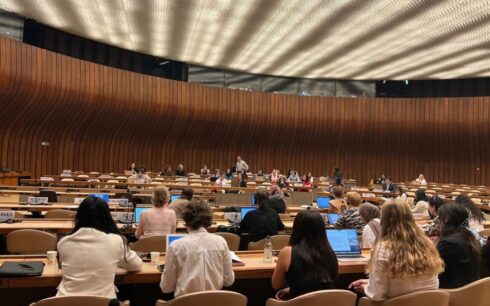Heather Barr, the associate director of the Women’s Rights Division at Human Rights Watch, has raised concerns about the exclusion of women’s rights from discussions at the Doha meeting on Afghanistan. Barr revealed that the United Nations has made significant concessions to the Taliban to ensure their participation in the meeting.
“We have learned in the last 24 hours that the Taliban have agreed to attend this meeting, and it’s clear that their participation is based on serious concessions made by the United Nations, which has effectively excluded Afghan women from the meeting,” Barr stated.
The Afghan Women’s Association has echoed these concerns, declaring that the Doha meeting lacks legitimacy without the full representation of women. The meeting will feature special representatives from various countries and organizations, and the Taliban has confirmed its participation, warning that any changes to the agenda or participants could lead to a shift in their stance.
One of the Taliban’s preconditions for attending was their recognition as the sole representative of Afghanistan. This condition appears to have been accepted by the UN, leading to the Taliban’s announcement of their participation. Barr emphasized that human rights and women’s rights have been largely excluded from the agenda of this third Doha meeting.
The UN has not yet publicly disclosed the participants and agenda for the meeting. However, the Taliban is optimistic that the focus will be on the private sector, climate change, and drug trafficking.
Human rights activists have voiced concerns that the primary goals of the Doha meetings—appointing a special representative for Afghanistan, forming an inclusive government, and ensuring women’s participation in all structures—are being sidelined in favor of the Taliban’s interests.
“We must remember that this action by the UN devalues the human rights it claims to uphold in the eyes of Afghan women and girls,” said Marriam Arveen, reflecting a sentiment shared by the Afghan Women’s Association. The association argued that without full representation of women and opposition voices, the Doha meeting cannot be legitimate.
The group also emphasized the importance of holding the Taliban accountable for women’s rights, particularly the right to work and education. Afghan citizens have expressed similar frustrations, with many calling for a government that treats women equally and avoids ethnic favoritism.
Human Rights Watch has criticized the UN for not heeding the advice of its own special rapporteur. Speaking at the Human Rights Council session, Richard Bennett, the UN special rapporteur for Afghanistan, highlighted the upcoming Doha meeting as a crucial opportunity to ensure that the rights and voices of women and girls are not marginalized.
The third round of the Doha meeting on Afghanistan is scheduled to take place at the end of this month, with envoys from 25 countries and possibly the Taliban participating.





